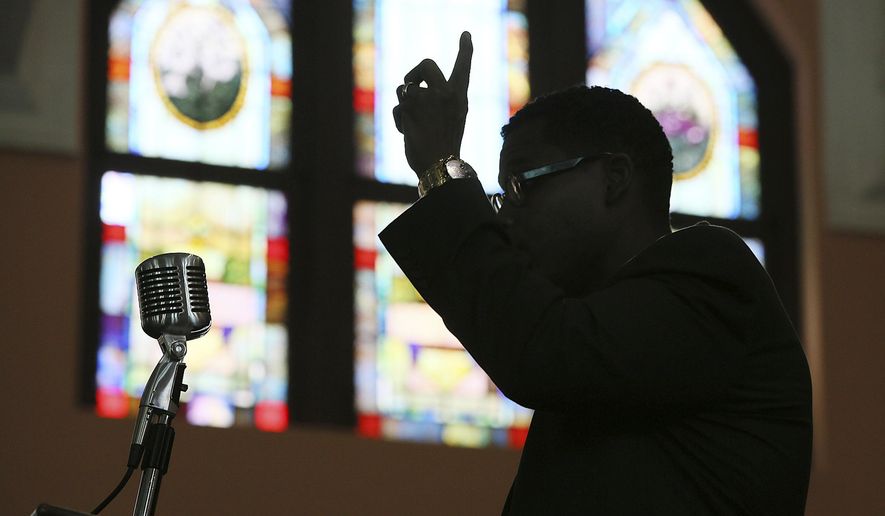In-person church is back for 98% of Protestant churches in the U.S., a survey from the data-gathering arm of the Southern Baptist Convention revealed, but that doesn’t mean the pews are packed.
About three-fourths, or 73%, of congregants overall showed up on Sunday morning to worship, the Lifeway Research poll concluded, but at Black Protestant churches, one-fourth of pastors say attendance is 30% below pre-pandemic figures.
According to the Lifeway survey, the 98% of U.S. Protestant pastors reporting their church meeting in person in August was the highest percentage since March 2020, when the COVID-19 pandemic first halted the gatherings.
By April 2020, only 10% of Protestant congregations reported having in-person gatherings. While the percentage rose to 87% in September 2020 as cases of COVID-19 dropped, it dipped to 76% in January 2021 as the virus took hold again. The number has climbed steadily since then, although the Lifeway survey was conducted before concerns about the highly contagious delta variant of COVID-19 were widespread.
“Every church’s path has been different during the pandemic, and each stage of resuming specific aspects of ministry is significant,” said Scott McConnell, executive director of Lifeway Research. “Worshipping together as a physical assembly of believers in Jesus Christ is an important element of the Christian faith. For almost all Protestant churches, this stage of ministry is now active again, though other aspects of ministry may not be.”
Black Protestant congregations in the U.S. were more likely to report precipitous declines in on-site attendance, the survey indicated.
While Black Protestant pastors reported 95% of their congregations had resumed in-person worship in August, those same pastors were 12.5 times as likely to say physical attendance had plunged — 25% of Black pastors versus 2% of White pastors.
Lifeway said its phone survey of 1,000 Protestant pastors was conducted between Sept. 1-29. “The calling list was a stratified random sample, drawn from a list of all Protestant churches,” the group said.
One Northern Virginia pastor said his congregation resumed in-person worship this year but is monitoring the environment as things change.
“We were online entirely for the first year of the pandemic, so March of 2020 through March of 2021,” the Rev. Henry G. Brinton, senior pastor of Fairfax Presbyterian Church said in a telephone interview. “And we started gathering again on Easter Sunday, this year,” he added.
The church was “comfortable taking masks off” in June, Mr. Brinton said, but resumed mask-wearing when the delta variant flared up. The pandemic, he added, has taken a toll on in-person attendance.
“I would say that still only about half of our congregation is comfortable gathering” in the sanctuary, he said. “We livestream the service. And based on the numbers I’m seeing, it looks like about half the congregation is still online, and half is gathering. So it’s been a slow return.”
Mr. Brinton said the congregation’s leaders are monitoring infection rates in the community and that he hopes for better in-person attendance in 2022.
“I think that in the new year we should be experiencing worship services that feel a little more complete and normal in terms of attendance and what we’re doing together in worship,” he said.
Other denominations across the region are reporting similar attendance. Melissa Lauber, spokeswoman for the Baltimore-Washington Conference of the United Methodist Church, said 80% to 90% of the 115 churches in her region are open for in-person worship. She added that all Methodist congregations in the conference are working on retaining members who remain part of the online congregation.
The Episcopal Diocese of Washington doesn’t track the number of its parishes meeting for live worship, spokeswoman J. Keely Thrall said in an email.
“We ask our churches to follow their local government guidelines — all of which now allow in-person worship with varying degrees of social distancing — but we are still encouraging parish clergy and lay leaders to make their own decisions about whether or not to hold in-person worship,” Ms. Thrall said.
• Mark A. Kellner can be reached at mkellner@washingtontimes.com.




Please read our comment policy before commenting.